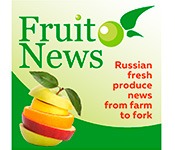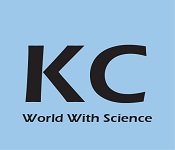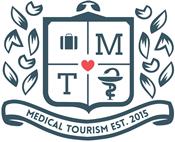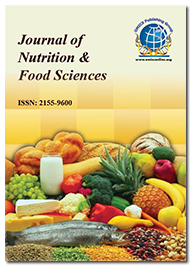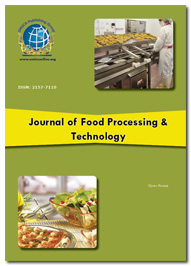Theme: Highlights of latest Advancements in Food safety research
Food Safety Meet 2019
Food Safety Conference 2019
Update your skills, enhance your knowledge base, and broaden your horizons- all in one place!
Date: October 17-18, 2019
Venue: Abu Dhabi, UAE
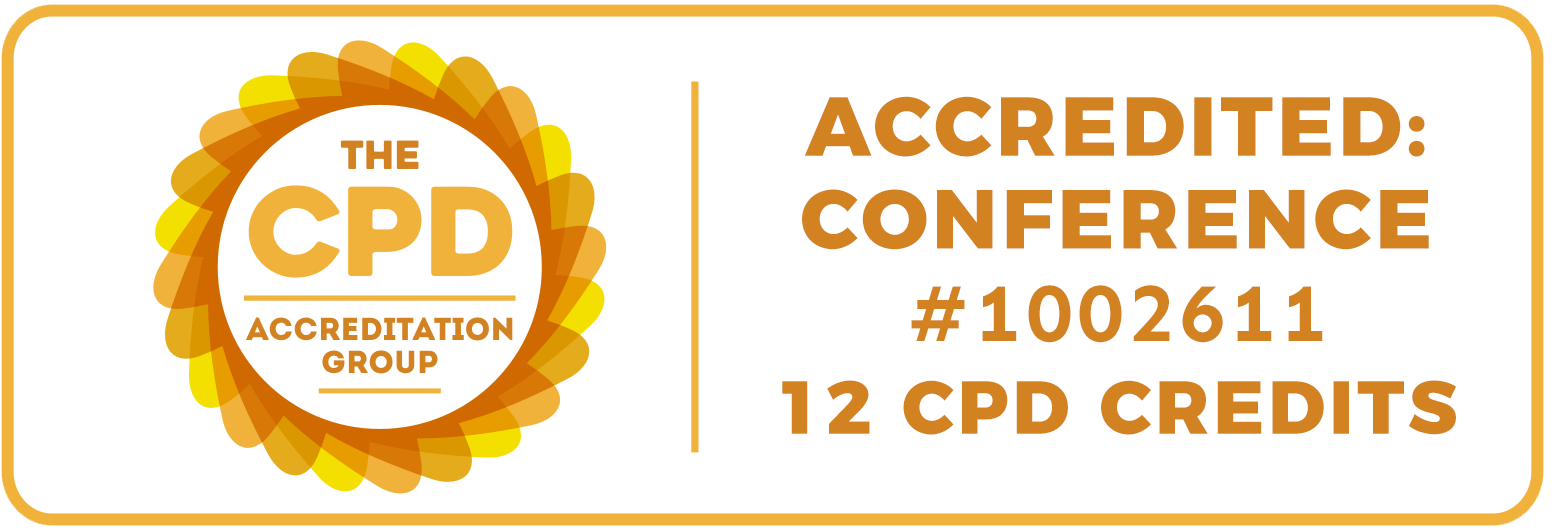
Fostering good practice through CPD Certification
We welcome all the fascinated delegates and contributors throughout the globe to wait 2nd International Conference on Food Safety and Health for the duration of October 17-18, 2019 in Abu Dhabi, UAE
The convention coordinates include effective keynote lectures, plenary displays, poster periods, and young researcher classes from the distinguished scientists, researchers and proficient college students across the globe creating a platform for data alternate and know-how transfer.
The lectures had been designed on current and rising regions of meals safety studies which include Food Safety and Quality, Food Safety Laws and Regulations, Food Hazards, Food Preservation, Food Toxicology, Food Microbiology, Food Allergies and Intolerance, Food-borne diseases, Pediatric & Women Nutrition and many others. We heartily welcome Entrepreneurs & enterprise delegates from Food & Nutrition industries across the globe to percentage their modern-day technology and processes making sure meals safety. The convention ambitions to discuss present day challenges, which might be the principle additives in making sure desirable health and the elimination of unfavourable, fatal and cognitive ailments of mankind.
ME Conferences organizes a 1000+ International Events inclusive of 300+ Conferences, 500+ Workshops and 200+ symposiums on several topics of Science and Technology internationally with assist from 1000 additional medical societies and Publishes 500+ Open access journals that contain over 50000 eminent personalities, supposed Scientists as editorial board participants. ME Conferences has performed professional leading-facet global conference globally inside the fields of Nutrition, Food Safety, and Technology.
Track 1: Food Microbiology
Food microbiology Studies the position of microorganisms in meals. It includes elements of microbic ecology in meals in addition as the use of microorganisms for the manufacturing of ingredients and meals. Moreover, some microorganisms represent an enormous venture for public health because of their ability to cause diseases. Food maintenance targets at inactivating and controlling the boom of pathogenic microorganisms, making certain shelf-stable and healthful ingredients. Thus, continuous efforts between food industries, governments, and society have been made to enhance statistical sampling gear and microbiological approaches with the intention to know the mechanisms which have an impact at the fate of microorganisms in ingredients.
Track 2: Food Chemistry
The interactions and chemical procedure between the organic and non-biological additives of food is called Nutriment chemistry. Some of the biological components encompass meat, poultry, brewage and milk. It consists of carbohydrates, lipids, Enzymes, and proteins, meals components, flavors, and colours in biochemistry. A specialized section of food technology worried with an information of the fundamental adjustments of composition and additionally the physical circumstance of foodstuffs which could arise all through and subsequent to industrial processing. This field moreover encompasses how products trade under positive food processing techniques and ways both to enhance and to stop them from occurring.
Track 3: Food Processing & Technology
Food processing is a series of unit operations to convert unprocessed food-to-foodstuffs with a prolonged period of time and enable storage that abolishes or reduces time or effort spent in culinary procedures for enhanced consumption. The principle of food processing within the majority of developing countries helps to change taste, aroma, and texture to enhance shelf life and aesthetic properties and to enhance the nutritional worth of foods. High-quality foods in greatest demand also are extremely perishable foods. Fortunately, most perishable foods are often preserved by the judicious use of present technology.
Track 4: Dairy Technology & Safety
Dairy technology study involves processing, storage, packaging, distribution and transportation of dairy products by implying the science of bacteriology, nutrition and biochemistry. Milk and dairy product still raise concerns with regard to contamination with mycotoxins, most of which have a possible or confirmed carcinogenic status. Such concerns are more serious for certain cheeses because of their frequent contamination with high concentrations of mycotoxins from varied sources, including the milk used as a raw material and molds found as contaminants or purposely added for ripening. Different control measures are suggested to forestall the formation or to remove mycotoxins in dairy products once formed therein. However, these strategies either offer an insufficient degree of protection or are heavy to implement.
Track 5: Food Toxicology
Food toxicology is involved with assessing the injurious consequences on living structures of chemicals found in foods. The chemical dealers may be guy-made (e.G., pesticide residues, food components, contaminants originating with processing machinery, or packaging substances) or of herbal beginning (e.G., microbial, animal or plant toxins). They can, also be generated within the direction of making ready, processing, and keeping foods (e.G., mutagens and cancer agents). It is important that scholars of meals technology in addition to environmental toxicology are acquainted with the simple chemical and biological elements of the injurious materials found in food. This path needs to broaden an expertise of the chemical and organic principles that decide toxicity and, by way of providing normal examples of the poisonous substances located in ingredients, it hopes to let college students emerge as familiar with their houses, modes of movement, and techniques of evaluation.
Track 6: Food Allergies and Intolerance
Adverse reactions to foods, aside from those considered harmful, are caused by a selected individual intolerance towards commonly tolerated foods. Intolerance derived from an immunological mechanism is mentioned as food allergy, the non-immunological form is termed Food Intolerance. IgE-mediated food allergy is the most typical and dangerous form of adverse food reaction. Food allergy is well recognized in clinical medicine as a reason behind acute attacks of asthma, urticaria, and angioedema and as a contributing factor in some cases of eczema and rhinitis.
Track 7: Designer Foods Designer Foods
Designer food refers to the food that's designed to possess some health advantages apart from its traditional nutritional value. ‘Designer food’, ‘functional food’ and ‘fortified food’ are synonym, that refers to the food fortified or enriched with nutrient content already present in them or different complementary nutrient. With the advances in the biotechnology, biofortification of foods using technologies like Recombinant DNA Technology and fermentation procedures are gaining an advantage within the industry.
Track 8: Novel Food Packaging Technologies
Novel food packaging technologies are developed to protect fresh and mildly-processed food against spoilage factors including microbiological, oxidation, moisture changes, and aromatic related factors. Novel food packaging technologies arose as results of consumer’s need for convenient, ready to eat, tasty and mild processed food products with extended shelf life and maintained quality. The novel food packaging technologies besides the basic function of containment increase the margin of food quality and safety. The novel food packagings techniques thus facilitate in fulfilling the demands throughout the food supply chain by gearing up toward persons own lifestyle.
Track 9: Food Borne Diseases and Prevention
A food-borne infectious disease is a quite common health problem that currently affects millions around the world. The burden of diseases caused by these food-borne pathogens remains mostly unknown. Concern over pathogenic and spoilage microorganisms in foods is increasing because of the increase in outbreaks of food-borne diseases (FBDs). The majority of food-borne diseases have either a bacterial or viral etiology. Preventive aspects are geared toward holding food (including liquid and alternative enteral feeds) at the proper temperature, storing food in a hygienic manner and preventing cross contamination. Foodborne diseases are often caused by biological, chemical or physical hazards.
Track 10: Seafood Conservation
The globalization of trade in seafood has created several challenges for the developing world specifically with respect to food safety and quality. Detection, identification, and monitoring of pathogens in food are important in achieving food safety goals. Rapid detection techniques enable outcome of fast and reliable results particularly with expansion in the global trade requiring rapid transport over long distances. Ready-to-eat seafood is one of the most necessary vehicles of foodborne illness in high-income countries, in large part because of a preference for minimally processed and natural foods. The safety of ready-to-eat seafood is majorly determined after fishing/harvesting by conditions imposed throughout handling, processing, distribution, and storage, which might create outgrowth of pathogenic bacteria or toxin formation possible.
Track 11: Food Safety and Quality
Food Safety refers to handling, preparing and storing food in an exceedingly way to best scale back the chance of individuals becoming sick from foodborne diseases. Food safety is a global concern that covers a variety of various areas of everyday life. The principles of food safety aim to forestall food from becoming contaminated and causing food poisoning. Food Quality confirms all the safety, nutritional quality and acceptability of the delivered foods as well as food acceptability by customers. Safely keeping of food will maintain the utilizing quality of it.
Track 12: Food Waste Management
There is growing evidence that a major share of global food is thrown away, with concomitant detrimental repercussions for sustainability. Reducing food waste is a key sustainability challenge for the food industry. Food wastes are often an environmental and economic downside if not managed properly but it will meet various demands of a country if it is considered as a resource. Global levels of food waste are attracting growing concern and need immediate action to mitigate their negative ecological and socio-economic ramifications. In the developed countries, 20-40% of food waste is generated at the manufacturing stage of supply chains and is usually managed in non-optimised ways resulting in extra environmental impacts.
Track 13: Food Safety Laws and Regulations
From earliest times food has been significantly vulnerable to exploitation, and there's an extended history of food legislation with the aim of preventing consumers being either cheated or poisoned. Measures for the protection of the consumer against the adulteration of food and drink were among the earliest examples of social legislation. Despite the unquestioned improvement in food purity and in marketing practices caused by this legislation consumers are more and more uneasy about the security and quality of the modern food supply. Important elements of Food Safety include general principles of food law, food hygiene and Genetically Modified Organisms labeling. Proposes to update and extend legislative controls to ensure the safety of animal feed were also included in food safety regulations.
Track 14: Food Hazards and HACCP
Track 15: Food Safety in Retail Foods
Food safety in retail foodservice to a greater extent is substantial to consumers. Cross-contamination of foodborne pathogens within the retail environment may be a vital public health issue causative to an exaggerated risk for the foodborne health problem. Ready-to-eat (RTE) processed foods similar to store meats, cheese, and in some cases, recent manufacture, are concerned in foodborne illness outbreaks because of contamination with pathogens like listeria. With relevance to Listeria monocytogenes, deli slicers are usually the main source of cross-contamination. GFSI was established to make sure confidence within the delivery of safer food to customers, whereas continued to enhance food safety throughout the supply chain.
Track 16: Food Safety Surveillance System
The surveillance systems have a twin purpose. Initial is to notice, control and stop foodborne disease outbreaks. Most of the countries have such surveillance and response systems in place; however, the effectiveness and coverage of these systems vary from country to country. Many of us define such foodborne disease outbreak investigations, together with their detection and control through food safety mechanisms and discuss the food safety response as well as the importance of developing emergency response plans for food safety. The second is to tell long-term problems, like distinguishing priorities and developing a policy for the control and prevention of foodborne illness; estimating the burden of foodborne diseases and monitoring trends, and evaluating foodborne disease prevention and control methods. However, only a number of countries have surveillance systems in place that may meet these objectives, severely impacting the potency of their food control systems.
Track 17: Food Authenticity & Sustainability
As a consequence of a series of food incidents and scandals that have taken place within the extended and more recent past, there's a growing concern that food chains must become additionally sustainable to regain and retain consumer trust. Sustainability as a construct is frequently evolving especially wherever the scope of mandatory and voluntary requirements changes and realigns. Food authenticity symbolizes a great challenge for quality control assessment. A great attention is paid by customers, food industries, and authorities. Many studies target this subject not only to forestall food frauds but also to protect customers from risks from undeclared ingredients or incorrect labeling.
Track 18: Pediatric & Women Nutrition
Paediatric Nutrition is defined as the upkeep of a well-balanced diet consisting of the essential nutrients and also the adequate caloric consumption that is needed to trigger evolution and withstand the physiological necessity at the different phases of a child's growth. It conjointly includes nutritional necessities in infants & children and numerous caring practices. Many of the health issues of women at different life stages are affected by nutrition. Diet is one lifestyle factor that is amenable to change. Health practitioners have a significant role to play in helping women to adopt a healthier diet.
Track 19: Nutritional Deficiencies and Disorders
The body needs many various vitamins and minerals that are crucial for both body development and preventing disease. A nutritional deficiency occurs when the body doesn’t absorb or get from food the required amount of a nutrient. Deficiencies will cause a range of health issues. Nutrition disorders will affect particularly to children, because they interfere with growth and development, and should cause serious health issues, like infection and chronic disease.
Track 20: Nutritional Therapy and Treatment
Track 21: Food Preservation and Quality Standard
The experiment for strategies for nourishment safety is frequently accompanied to the start of human development. Individuals United Nations agency survived brutal winter seasons idea that it truly turned into primary to get some of approaches for making sure a nourishment provide amid the time once no crisp natural merchandise or vegetables had been handy. Confirmation for the usage of lack of association (drying) as a way for nourishment safeguarding backpedals no however 5000 years. Among the crudest types of nourishment safety that rectangular degree nevertheless getting used these days square degree such strategies as smoking, drying, salting, natural movement, and maturing. Powerful countrywide sustenance management frameworks rectangular degree fundamental to ensure the welfare and protection of local customers. They are moreover simple in empowering international locations to assure the safety and nature of their sustenance entering conventional change and to guarantee that foreign-made nourishment's modify to country wide conditions.
Track 22: Good Manufacturing Practices (GMP)
Good Manufacturing Practices is the execution of the producing processes, adhering to the recommendations and protocols provided by using the control companies and authorities. GMP consists of the right use of gadget, substances, facilities and methods for the production of food products in order that the hygiene is maintained and to maintain the meals protection.
Track 23: Meat Hygiene Management
The intestines of animals contain a huge sort of microorganism. Some of these can reason food poisoning in human beings. one of the most not unusual examples is the various types of pathogenic E. Coli, such as salmonella, Campylobacter, Clostridium, and O157. Such micro organism can contaminate meat thru secondary infection routes inclusive of the various ranges worried in meat processing and through insufficient cleaning and sterilization of implements and facilities used to put together meat.
Perishable meals consisting of meat can be regarded as excessive risk foods due to the fact they incorporate an abundance of nutrients which favour the boom of micro-organisms (Subratty & Gurib, 2003). Studies in the United Kingdom show a robust correlation between meat intake and food-borne disorder out breaks (Holt and Henson, 2000). Contamination of meat at some stage in processing at abattoirs happens thru pass infection of meat by using personnel and device which includes knives and saws used all through processing (Van Zyl, 1998). Food protection structures consisting of the Hazard Analysis Critical Control Point (HACCP) machine were followed the world over to minimize the chance of contamination in the course of abattoir processing with the purpose of protective patron protection (Hilton, 2002).
Track 24: Poultry Hygiene Management
The consumption of good enough secure and nutritious food is crucial to our fitness and well-being. Keeping our meals safe calls for an know-how of meals protection principles. There are some of contaminants (or dangers) that would seem in our food and infection may arise at any level for the duration of the manufacturing, processing, garage and preparation of our meals. Good meals safety practices for the duration of the meals manufacturing chain from “farm to fork” will minimize the risk of contamination of our meals and additionally minimize, or even dispose of, the impact of contamination that has already happened.
Summary of Food Safety Conference:
Food safety is a topic describing coping with, training, and garage of food in methods which stop food-borne un well-being. The prevalence of or extra cases of an equal illnesses because of the ingestion of a regular food is known as a Food-borne disease outbreak. This includes type of routines that must be observed to keep away from ability fitness dangers. During this method food safety commonly overlaps with food defence to stop harm to purchasers. The tracks inside this line of concept are protection between enterprise and the market and then between the marketplace and the client.
Importance & Scope of Food Safety Conference:
2nd International Conference on Food Safety and Health can be prepared on October 17-18, 2019 Abu Dhabi, UAE.
The convention highlights the subject “Highlights of new Advancements in Food safety research”. Food Safety and Health 2019 will speak the ultra-present day studies consequences and technological improvements in the area of meals safety, food processing, Food Hazards and HACCP, Risk evaluation and control. The event is designed in a manner to offer an one among a kind platform for logo spanking new researchers, students and educators to provide and speak the maximum latest improvements, traits, and concerns, practical disturbing conditions encountered and the answers followed in the discipline of food safety.
Food Safety Meet 2019 will incorporate most important keynote speakers, session audio device, poster presenters who can be providing their advanced studies at the topics Food Processing. A form of corporations will show products and services that offer solutions for Food protection.
Why Food Safety Conference 2019 in Abu Dhabi?
Abu Dhabi is the wealthiest emirate of the UAE in phrases of Gross Domestic Product (GDP) and in step with capita income. More than $1 trillion is invested worldwide in this metropolis on my own. In 2010, the GDP in step with capita moreover reached $40 9, six hundred, which ranks ninth inside the international after Qatar, Liechtenstein and Luxembourg and hundreds of others.
As in line with the Health Authority Abu Dhabi (Head), round 1,800 medical nurses need to be enrolled every three hundred and sixty five days crosswise over Abu Dhabi to live aware about the developing interest. It is also evaluated that via 2019 a further 6,500 attendants can be required.
Market Research of Food Safety Congress:
Target audience of Food Safety Meet 2019:
Food Safety and Health 2019 will comprise leading keynote speakers, consultation speakers, poster presenters who can be presenting their research one of kind topics related to Food protection and fitness elements.
Academia 55%
Others 15%
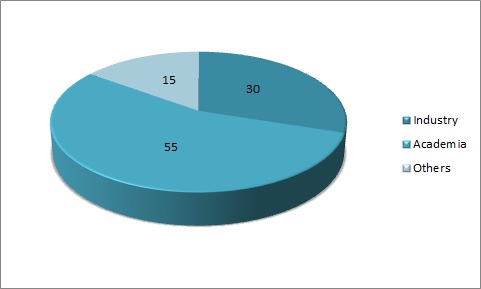
Food Safety Associated Universities in World:
-
University of Valencia, Spain
-
University of Helsinki, Finland
-
University of Vienna, Austria
-
Stockholm University, Sweden
-
Queens University, Ireland
-
University of Gothenburg, Sweden
-
University of Bergen, Norway
-
York University, UK
-
University of Glasgow, Scotland
-
University of Bern, Switzerland
-
Uppsala University, Sweden
-
University of Dundee, Scotland
-
University of Hull, UK
-
University of Cambridge, UK
-
University of Southampton, UK
-
University of Sunderland, UK
-
University of Oxford, UK
-
Aarhus University, Denmark
-
Massachusetts Institute of Technology, USA
-
Utah State University, USA
-
University of Nebraska – Lincoln, USA
-
University of Minnesota, USA
-
University of Zagreb, USA
-
Queen's University Belfast, UK
-
University of Salford, UK
-
Royal Agricultural University, UK
-
Cardiff Metropolitan University, UK
-
University of Central Lancashire,UK
-
Coventry University, UK
Food Safety Associated Universities in Middle East :
-
Damascus University, Syria
-
Tel Aviv University, Israel
-
Lebanese International University, Lebanon
-
Yildiz Technical University, Istanbul
-
Cyprus University of Technology
-
Tehran University of Medical Sciences, Iran
-
Isfahan University of Medical Sciences, Iran
Food Safety Associated Universities in UAE:
- Canadian University of Dubai, Dubai
- United Arab Emirates University, UAE
- BITS Pilani, Dubai
- Amity University, Dubai
- International centre for Training and Development
- Manipal University Dubai
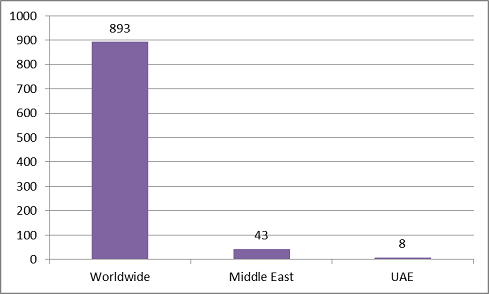
Figure 2: list of Universities
Companies Associated with food Industries:
-
National Food products company
-
United foods PSC
-
SOLICO Food industries
-
Global food industries
-
Federal foods LLC
-
Sunlmpex Biz
-
Emirates Industrial & Trading Co Ltd
-
Dabur International Ltd
-
UB Gulf FZE
-
Windsor Foodstuff Factory Ltd
-
National Food Industries LLC (NFI)
-
Yakult Honsha Co., LTD
-
Food Safety Consultants in Dubai
-
MRS International Food Consultants
-
GHP Group of Companies
-
GHP Food Testing & Calibration Lab
-
Bright Well quality Consultants
-
Apex Food Consultants
-
Al Safa Consultancy and Hospitality Services
-
Sanbook Quality Consultancy
-
Food Control Department of Dubai Municipality
Food Safety Software:
-
Safefood 360°
-
Food Safety Management Software –EtQ
-
SafetyChain Software
-
TrackWise
-
N2N Global
-
eFood
-
FoodLogiQ
-
CSB-System
-
Nutraid
-
N2N Global
Top Independent Commercial Food Safety Labs:
-
NSF International
-
AGES - Austrian Agency for Health and Food Safety
-
Galbraith Laboratories Inc.
-
LabiotestSrl
-
LRQA Limited
Companies Associated with Food Safety:
-
Hygiene Expert
-
3M
-
Food Standards Agency
-
Qiagen
-
European Safety Bureau
-
MAS Environmental
-
SAI Global
-
Dacom
-
LGC Standards
-
A-Zone Technologies Ltd
-
Waters Corporation
-
Microbac Ltd
-
Modern Water - Monitoring Division
-
RVSL Certifications Ltd.
-
Bibby Scientific
-
Environmental Scientifics Group
-
Aura Sustainability
-
Radiant Industrial Solutions, Inc.
Related Societies & Associations Globally:
-
Good Food Society, UK
-
The Food society, USA
-
French Broad Preservation Association, France
-
Slow Food, Italy
-
ISEKI-Food Association, Europe
-
IUFoST International Union of Food Science and Technology, Europe
-
National Association of Specialty Food, USA
Asia/pacific:
-
Japan Society of Nutrition and Food Science, Japan
-
The Australian Institute of Food Science Technology, Australia
-
Asian Food Safety and Security Association, Bangladesh
-
Food Safety and Standards Authority of India (FSSAI),India
-
State Food and Drug Administration of China, China
Middle East:
-
Abu Dhabi Food Control Authority, UAE
-
Egyptian Food Safety Information Centre (EFSIC), Egypt
-
The Arab Centre for Nutrition, Bahrain
-
Health & Safety Society
-
Qatar Foundation (QF) Food and Nutrition Services, Qatar
-
Saudi Food and Drug Authority, Saudi Arabia
-
Middle East Gases Association
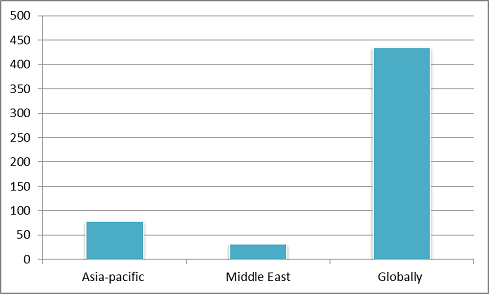
Figure 3: Associations & Societies
Projections: Growth by next 5-10 years:
The food protection market was valued at USD 12.01 Billion in 2016. It's projected to develop at a powerful CAGR of 7.60% from 2017, to achieve 18.54 Billion by using 2022. The worldwide meals safety trying out marketplace is increasing with substantial growth capacity over the next five years. The international meals protection checking out marketplace is increasing with considerable increase capacity over the succeeding 5 years. The expansion of this market is attributed to global upward thrust in foodborne outbreaks, advancements in checking out technologies, globalisation of meals deliver, and rigorous global food protection legal guidelines. The key players inside the global meals protection marketplace are anticipated to concentrate upon additional attention from the clients by way of maintaining a detailed eye on the quick changing styles of testing, enhancing their product at a similar time therefore as to provide particular checks. Establishing a strong brand is also projected to assist those market players to preserve their patron base.
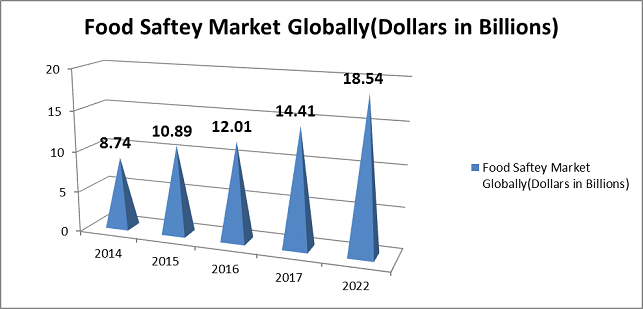
Figure 4: Food Safety market
Related Societies:
Europe: Society of Food Hygiene and Technology (SOFHT), Norwegian Food Safety Authority, European Food Safety Authority, UK Food Associations, Safe Foods, Microbiological Safety of Food Funders Group, Federal Ministry of Food Agriculture and Consumer Protection, Food Standards Agency, Food and Rural Affairs
USA: International Association for Food Protection, Food and Agricultural Organization, Association of Food Industry, American Society for Nutrition, National Food Product Associations, Food Packaging Association, Food Processing Supplier Association, Flexible Food Packaging Association, National Food Processor Association, New Jersey Processing Association, Specialty Food Association,
Asia: Chinese American Food Society, Asia Pacific American Food Society, Nutrition Society of Malaysia, Food Society, Asia Pacific American Food Society, The Thai Packaging Association, Taiwan Frozen Food Processor Association, Food Safety South East Asia World Health Organization, Food Technology Asia, Singapore Food Manufacturing Association, Michigan Food Processors Association, Midwest Food Processors Association (MWFPA), Chinese American Food Society, Agricultural and Food Marketing Association, Probiotic Association of India, European Association of Agricultural Economists, United Arab Emirates Association for Food Protection
Related Conferences from all over the Globe:
Food Science Conferences | Food Technology Events | Food Engineering Conference | Food Safety Summit | Food Health Congress | Nutrition Meetings | Food Quality Conferences
2nd International Conference on Agriculture, Food and Aqua, November 18-19, 2019, Bali, Indonesia
15th Annual Conference on Crop Science and Agriculture, November 18-19, 2019, Bali, Indonesia
4th International Conference on Food and Beverage Packaging, June 13-14, 2019, Barcelona, Spain
European conference on Emerging Foodborn Pathogens and Toxins, May 23-24, 2019, Paris, France
23rd International Conference on Food Technology & Processing, October 07-08, 2019, Dublin, Ireland
4th Global Food Security, Food Safety & Sustainability Conference, May 10 -11, 2019, Montreal, Canada
European Conference on Research in Agri, Food and Aqua, May 06-07, 2019, Amsterdam, Netherlands
Emerging Foodborn Pathogens and Toxins, May 23-24, 2019, Paris, France
30th Annual Meeting on Nutrition & Food Sciences, September 19-20, 2019, Hong Kong
Global Summit on Food and Nutrition, July 01-02, 2019, Paris, France
International Conference on Food Biotechnology, July 01-02, 2019, Paris, France
International Conference on Food & Beverages, September, 09-10, 2019, Singapore
European Food and Beverage Expo, September, 16-17, 2019, Luxembourg City, Luxembourg
2nd International Conference on Probiotics and Prebiotics, September, 27-28, 2019, Toronto, Canada
Conference Highlights
- Food Microbiology
- Food Chemistry
- Food Processing & Technology
- Dairy Technology & Safety
- Food Toxicology
- Food Allergies and Intolerance
- Nutritional Therapy and Treatment
- Novel Food Packaging Technologies
- Food Borne Diseases and Prevention
- Seafood Conservation
- Food Safety and Quality
- Food Waste Management
- Food Safety Laws and Regulations
- Food Hazards and HACCP
- Food Safety in Retail Foods
- Food Safety Surveillance System
- Food Authenticity & Sustainability
- Pediatric & Women Nutrition
- Designer Foods
- Nutritional Deficiencies and Disorders
- Food Preservation and Quality Standard
- Good Manufacturing Practices (GMP)
- Meat Hygiene Management
- Poultry Hygiene Management
To share your views and research, please click here to register for the Conference.
To Collaborate Scientific Professionals around the World
| Conference Date | October 17-18, 2019 | ||
| Sponsors & Exhibitors |
|
||
| Speaker Opportunity Closed | Day 1 | Day 2 | |
| Poster Opportunity Closed | Click Here to View | ||
Useful Links
Special Issues
All accepted abstracts will be published in respective Our International Journals.
- Journal of Food: Microbiology, Safety & Hygiene
- Journal of Nutrition & Food Sciences Open Access
- Journal of Food Processing & Technology
Abstracts will be provided with Digital Object Identifier by






